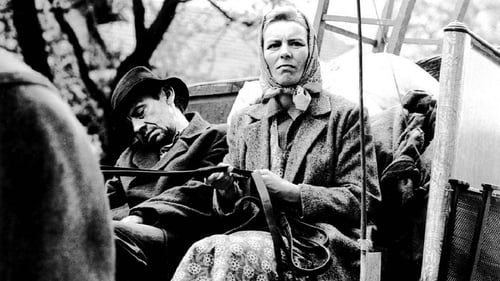
Matylda (Jaroslava Ticha), who lives in the Czech countryside, is trying to arrange burial plans for her dying husband, Jan (Ludvik Kroner). While Matylda hopes to have a funeral for Jan in the small town where they once lived, there are complications. Years earlier, Jan spoke out against the Communist government and was consequently expelled from the town. When Matylda fails to convince a local politician to allow the ceremony, she uses her husband's funeral as a public show of dissent.

It is a story of three veterans released from the army. During one night spent camping in the country they one by one wake up and meet three elvish brothers. Each of the veterans is given a magic item - one gets magic harp that provides him with servants by wish, other one endless pouch of gold and the last one owns magic hat that can create all the staff excluding money and people.

Attorney Horic is a specialist for cases connected with motoring. He approaches to his work unconventionally, he does not hesitate to search for evidence right in the terrain and he is willing to take various risks.

venkovský muzikant
The opera lady singer Ema Destinnová is in all her splendor at the American stages. But in Europe there rages war and she decides to return home to Bohemia.

Honza and Zuzana are very young husband and wife. They have a little daughter of whom willingly occasionally take care the grandparents and Honza's fifteen-year-old brother Martin. Zuzana continues studying and Honza devotes all weekends as an amateur competitor to the motor-cycles at the speedway. Zuzana is not interested in motor-cycles. Martin holds responsible for his brother's marriage and at the advice of his friend Magda, who is of the same age, invites her sister-in-law to the club of Hucul horses so that she does not feel bored. But by misfortunes and unexplained quarrels both young husband and wife start being jealous of one another.


The 11-year old Jakub is living in a children's home, when he is picked up by his father. The father has been "away" for four years, the boys mother doesn't want the child. Jakub gradually finds out, that his father is hiding a secret from him. But they gradually manage to build a warm relationship and a promising new life in the city.
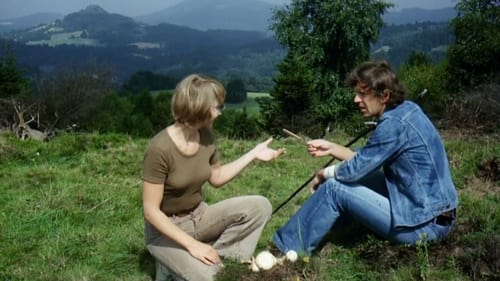
Hlavními postavami je mladá psycholožka Doubravka a vesnický mladík Honza Macháček. On je traktorista, který při ztřeštěné sázce dočasně přišel o řidičský průkaz, takže teď pase družstevní stádo krav, ona je na chatě se svým chlapcem Bobou, který nepříliš úspěšně studuje medicínu a právě se připravuje na opravné zkoušky. Honzova bezprostřednost, optimismus a přístup k životu i práci ostře kontrastuje se sobeckým, slabošským a nevyrovnaným Bobou a Doubravka si stále víc uvědomuje, že její cit k Bobovi zmizel a doopravdy má vlastně ráda Honzu. Otázkou je, jak se na takovou partii bude dívat její poněkud konzervativní rodina.

1974 Czechoslovak drama film directed by Karel Steklý.
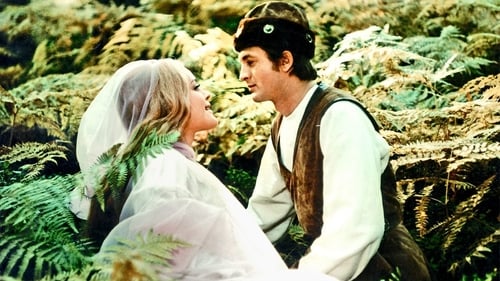
Princelet's Servant
The hero of this popular fairy tale is a young prince who, after the death of his parents, goes out into the world. During his travels he meets a magical talking horse and falls in love with the beautiful princess Slavna. On the advice of his horse, he binds one eye and pretends to be dumb and enters into service as the castle gardener.

Jan Zika is the legendary hero of the communist resistance movement during World War II and leading functionary of the second underground Central Committee of the Communist Party of Czechoslovakia.
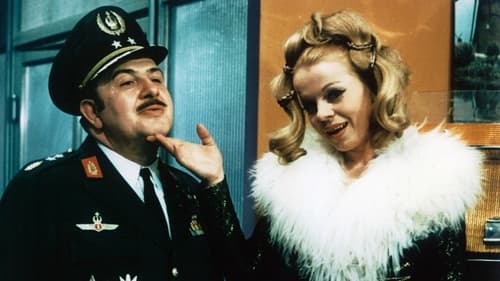
After a soldier cuts off the arm of king's cousin, king decides to deactivate the army. Of course, generals don't like it at all and they try to kill the king. The assassin should be artificial body in the shape of actress Evelina Keleti and with brain of psychotic serial killer Fany Stubová. They also manage to kill king's astrologer Stuart Hampl, who warns the king. Accidentally, Hampl's brain is implanted into assassin's body, actress Keleti is killed and chaos begins.

Kinoautomat was the world's first interactive movie, conceived by Radúz Činčera for the Czechoslovak Pavilion at Expo '67 in Montreal. At nine points during the film the action stops, and a moderator appears on stage to ask the audience to choose between two scenes; following an audience vote, the chosen scene is played.

Sátira política y social checoslovaca surrealista que utiliza como trasfondo el viaje de Lemuel Gulliver a los países de Balnibari y Laputa, con una atmósfera que es en parte Kafka y en parte Carroll.
Lemuel Gulliver (Lubomír Kostelka) ha tenido un accidente automovilístico y continúa su viaje a pie por el campo desconocido. En el camino encuentra un conejo muerto vestido de hombre y saca un reloj del bolsillo del pecho de su chaleco. La casa medio en ruinas en la que entra le recuerda a Lemuel su infancia y le trae un recuerdo doloroso de una niña muy querida, Markéta, que se ahogó hace años. Gulliver se encuentra en Balnibarbi, un país donde no entiende las leyes y los hábitos y por lo tanto continuamente ofende la decencia pública. Es un día en el que se ordena a las personas que mantengan la boca cerrada y obligan a su visitante a hacer lo mismo. Se enfrenta a un duro interrogatorio y le resulta difícil explicar que él no es el conejo Oscar cuyo reloj se ha encontrado en su poder.

Waiter
Adolf (Miloš Kopecký), the irresistible seducer of women, is fond of Janicka (Hana Lelitová), a novice opera singer. The girl, however, prefers famous men and Adolf thus does not have a single chance with her. One day in a hospital, he meets a Greek partisan named Apostolek (Pavel Landovský) who impresses him with his spontaneity and ease in solving all problems, especially those with women. Adolf has an idea for a revenge. He makes Apostolek familiar with social manners, dresses him after the latest fashion and introduces him to Janicka as a Greek conductor. Janicka instantly falls in love with the made-up composer and Apostolek does no better.
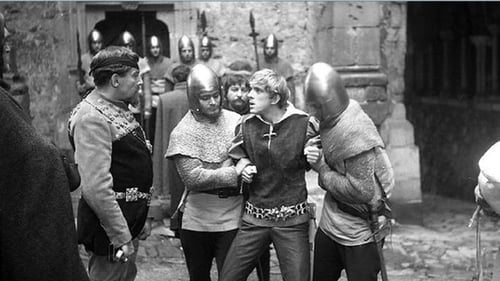
The young Prince Charles (Jaromír Hanzlík), the future King of his country Charles IV, is being educated at the French court in the company of his fiancée Blanche (Daniela Kolárová). One day he receives a summons from his father John of Luxembourg (Milos Kopecký) in Italy. He leaves for Italy accompanied by a deputation from Bohemia. On the way the prince's company fights a battle with armed Milanese against heavy odds. Thanks to Charles's perspicacity, the prince's almost naked soldiers win through. In Lucca in Italy Charles joins his father, and here he experiences an amorous adventure and escapes from the traps laid by the Italian rebels.
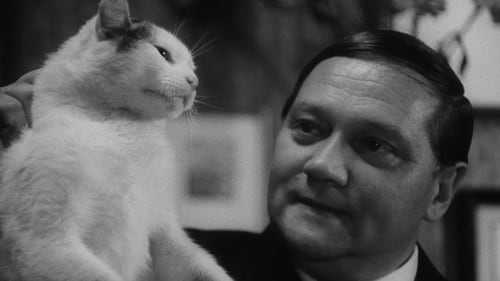
Beran
El señor Karel domina a sus familiares, amigos y empleados. Sólo está preocupado porque el tránsito de los difuntos hacia el más allá sea lo más limpio y rápido posible, todo mediante la incineración de cadáveres en el cementerio que regenta. (FILMAFFINITY)

This historical film by Hynek Bočan touches upon the indecisiveness of the Czech nation, ready to bend the backbone in face of foreign rule. Situating the story at the close of the Thirty Year War enabled the depiction of the misery of the people that affects even an impoverished aristocratic milieu. Rudolf Hrušínský appears here in the role of an indecisive knight, persuaded for a long time and in vain to join the anti-Habsburg movement. The story does not only captivate through the depiction of manifold human characters, intrigues and sycophancy, but also through the circumstances ruling over the devastated farmstead, sunk in mud and crudeness. One of the best films with an updating tendency has come into being here, rightly being named along the such greats as Kladivo na čarodějnice (Witches' Hammer).

Czechoslovakian film.

Versión cinematográfica de la famosa novela satírica inacabada del escritor checo Jaroslav Hašek, publicada en 1921 y 1922, que narra la historia de las aventuras de un veterano soldado checo llamado Josef Švejk durante la Primera Guerra Mundial. La historia comienza con el asesinato del archiduque Francisco Fernando. Švejk es detenido en la taberna por un agente de la policía secreta y acaba en un manicomio, pero finalmente es puesto en libertad. Presume de haber sido declarado oficialmente idiota y manifiesta un patriótico entusiasmo por la guerra y la monarquía austro-húngara. Posteriormente es reclutado en el ejército. Su forma especial de atender a las órdenes de sus superiores y la forma de ejecutarlas deja dudas en el espectador acerca de su posible estupidez o sabiduría...
















